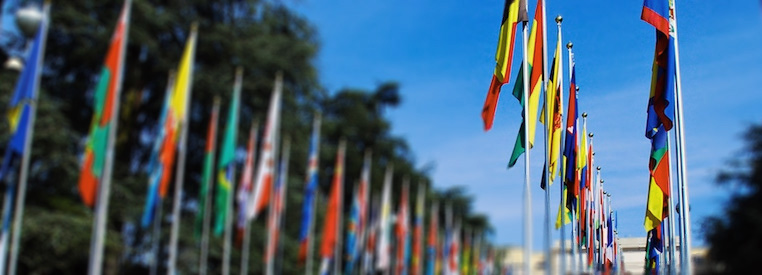China| Liu Xiaobo case indicative of harsh sentencing trend for freedom of expression
Sarah Cook, Asia Research Analyst and Assistant Editor of Freedom House, writes: “When Chinese democracy activist and author Liu Xiaobo was sentenced to 11 years in prison last week, many around the world appeared stunned by the length of his sentence and absence of due process rights. Such harsh punishment for offering rational, constructive criticism of the government seems more compatible with Soviet times or Burma’s ruling junta than the modernized economic world power that China has become.
Unfortunately, Liu’s sentencing – in all its injustice and absurdity – is symptomatic of more systemic problems and politicization of the Chinese legal system, particularly in so-called “sensitive” cases. Moreover, in the past two years, signs have emerged that the situation may be getting worse, not better.
Over the past three decades, the Chinese legal system has been built from scratch – thousands of laws have been passed, judges trained, and state-of-the art courthouses built. Under this external facade of modernity, however, lies a system that still falls far short of the rule of law.
The Chinese Communist Party exercises significant influence over the judicial system via its political-legal committees and power to appoint judges, most of whom are party members and subject to its disciplinary procedures. Whether because of direct orders from the local party committee or fear of reprisals from other state actors, judges’ autonomy to decide cases based on the law and evidence remains circumscribed.
In recent years, greater space has been granted in commercial cases, disputes between private individuals, and some administrative decisions. Nevertheless, judicial independence remains dramatically curtailed in socio-economic and politically sensitive cases, where lawsuits may be automatically rejected and verdicts are routinely predetermined. Hence the need for no more than a few minutes or hours per trial. [...]
More here on JURIST.
China| Charter 08’s Liu Xiaobo faces 15 years in prison
From the Guardian:
One of China’s leading dissidents has been charged with “inciting subversion”, and faces a possible 15-year jail sentence, amid growing international outrage over his detention and forthcoming trial.
Liu Xiaobo was one of 300 democratic activists in China to author a bold call for constitutional reform last December. The manifesto was published under the name Charter 08, and called for greater freedom of expression, multi-party elections and independent courts. Seen as a figurehead for the movement, Liu was taken into detention shortly before the document was published online. Then, in June, he was formally arrested on suspicion of incitement to subvert state power.
In the latest development – which came on International Human Rights Day, a year and a day after the charter’s publication – officials told Liu’s lawyer they would charge him. He will almost certainly be convicted and sentenced to jail, say experts, probably within weeks.
“The timing is not coincidental,” said Joshua Rosenzweig of the Dui Hua Foundation, which supports political prisoners. “It draws attention away from commemorating the document and says: ‘Look, you want to talk about Charter 08? This is what it gets you.’?” [...]
More here.
China| Political activist Liu Xiaobo facing subversion charges
From BBC:
Chinese police have recommended that prosecutors formally charge top dissident Liu Xiaobo with inciting subversion, his lawyer has said.
Mr Liu has been detained for a year without charge.
Mr Liu was detained on 8 December 2008 after co-authoring Charter 08, a manifesto urging political reform.
The likely charge of “inciting subversion to state power” is routinely used against anyone criticising the Chinese Communist Party.
“The public security organs feel the [prosecutors] should charge him and have recommended that they do so,” Mr Shang said after seeing a copy of the recommendation.
“It is two-fold. One part relates to Charter 08 while the other relates to articles of his posted on the internet after 2005,” Mr Shang said. [...]
More here.
